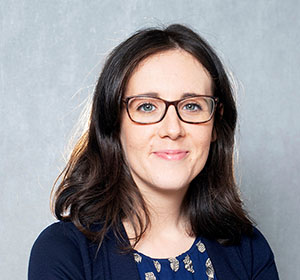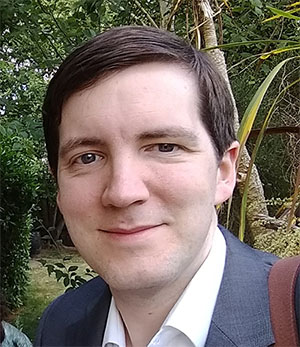Two Queen’s researchers awarded prestigious Future Leader Fellowships by UK Research and Innovation
Two researchers in the School of Medicine, Dentistry and Biomedical Sciences have been awarded Future Leaders Fellowships as part of a new investment announced by UK Research and Innovation (UKRI).

Early career academics from around the UK have been selected following stiff competition to receive funding, aimed at propelling the next generation of researchers as they lead cutting-edge projects to address global challenges.
The fellowships are funded by UKRI, the national body which brings together the seven Research Councils, Innovate UK and Research England.
Dr Úna McMenamin from the Centre for Public Health, received an award of over £883,000 to develop one of the first population-based registers for the precursor condition of the most commonly diagnosed gynaecological cancer. The research will use routinely collected health records to improve diagnostics and treatment while leading to improved clinical guidelines on a global scale.

Dr Úna McMenamin
Endometrial cancer, also referred to as womb cancer, is the most commonly diagnosed gynaecological cancer in the UK and is rapidly rising in incidence, especially in younger women. There is no routine screening for endometrial cancer and primary treatment involves a hysterectomy, meaning a woman is forced to lose her fertility if treatment is required. Endometrial hyperplasia is a recognised precursor, which if detected, can help to prevent the disease progressing to endometrial cancer.
Dr McMenamin, whose research will provide the first population-based endometrial hyperplasia register in Europe, explains: “The current lack of data and information around this common cancer is alarming. I am delighted to have the opportunity to address this through establishing a register in Northern Ireland that will enable novel data linkages to important clinical datasets allowing us to identity the women most at risk of progression to endometrial cancer. The register will be facilitated by the Northern Ireland Cancer Registry, which is funded by the Northern Ireland Public Health Agency.
“This research programme will generate robust population-level evidence to inform diagnostic, treatment and surveillance guidelines for women with endometrial hyperplasia and endometrial cancer and will ultimately lead to better informed clinical decision-making between women and their health care professionals.”
Dr Stephen McMahon from the Patrick G Johnson Cancer Centre has received £1.2m to develop personalised radiotherapy treatments to improve patient outcomes and reduce side-effects.

Dr Stephen McMahon
Radiotherapy is currently prescribed on a ‘one size fits all’ basis, whereby patients with the same type of cancer get the same dose of radiation, despite each individual responding differently to its effect. Dr McMahon’s explains: “Rather than one dose of radiotherapy for everyone, if we could predict how different patients’ cancers would react, we could then tailor the dose to the individual, maximising the patient’s chance of a successful treatment outcome.
“We will develop tools that will enable us to better understand how cancers respond to radiation based on their genetic profile. By bringing this knowledge from the lab into the clinic, we hope to provide clinicians with information on individual sensitivity to radiation at the time of treatment. This will enable more personalized radiotherapy treatments, minimizing side-effects and maximizing the chance of tumour cure.”
Professor Emma Flynn, Pro Vice-Chancellor for Research and Enterprise, added: “'Now, more than ever, we appreciate the value of innovative research within the realm of health. I'm delighted that Una and Stephen have been recognised for their critical work within cancer research. Queen's is renowned for the impact of its research, and we will be working with both of them to support them to realise this impact. I look forward to welcoming them in their new roles to the Queen's Fellowship Academy.”
Media
Media enquiries to comms.officer@qub.ac.uk
